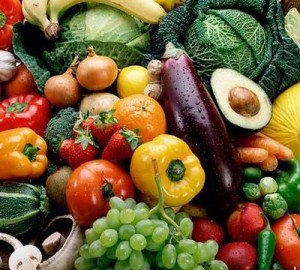 A major theme of Compression Thinking is learning how to live as well or better using much less. That simple objective is possible for a working organization to fix in mind, but complexity implementing it challenges old business thinking. From a business view, shortages, environmental constraints, and protests are just more poisonous jellyfish in an ocean full of them that foul up running a business.
A major theme of Compression Thinking is learning how to live as well or better using much less. That simple objective is possible for a working organization to fix in mind, but complexity implementing it challenges old business thinking. From a business view, shortages, environmental constraints, and protests are just more poisonous jellyfish in an ocean full of them that foul up running a business.
If they went away it would simplify life, but they won’t. Financial analysts try to factor these, plus business system risks into models, but modeling risks does not eliminate them. To alleviate the causes of problems at their roots we need learning organizations able to integrate input from many people and many directions and actually do something to alleviate them.
Unfortunately human individuals have limited capacity to do this. Our brains can’t hold that much in mind at once, so we tend to ignore any risk (or opportunity) that we think has a very small probability when making decisions or constructing models. Nassim Taleb’s book, Black Swan gave this phenomenon a name. Just because no one has seen a black swan does not assure that one won’t be seen. Big swarms of minute probabilities over a long period of time assure that some will come to pass.
Besides the unexpected twists of nature, business systems keep entangling in more complexity, like multiple tax codes, arcane financial instruments, fickle customers, and far off suppliers that can’t deliver because revolutionary mobs blockade factories. Global business entails risks in many more places and from many more causes.
A theory from Big History, with some evidence, holds that a cooling universe evolves nature toward more complexity. Complexity breeds more complexity. Greater numbers of molecules, viruses, or bacteria multiply possibilities to self-modify into ever more complex combinations, so that this evolution takes on a life of its own.
In the human domain, more and more innovators likewise make inevitable the mixing of a bigger soup of ideas into more and more complicated systems. We’re blessed with more innovations coming at a faster rate. We’d like to think that they are all beneficial.
However, complex innovations also multiply possibilities for black swans – unforeseen, unintended outcomes. Some are strictly in human systems. For example, the internet both multiplied capabilities impossible before and led to computer viruses and malware never possible before, like Stuxnet and Flame. These malicious masterpieces surfaced publically only after those attacked became aware of them after a long delay. How many more subtle disruptors are floating through servers, known only to the perpetrators? Will perpetrators always be able to make their creations commit digital suicide or prevent them launching unintended effects? (The endless possibilities open a bottomless pit of conspiracy theories to exploration by the paranoid.)
But the “human malware” we’ve visited on nature is even more complex. Risks that few of us (or none of us) have contemplated may be more pernicious than the big risks being foggily mapped (like climate change).
An example of discounted risk is soil depletion. It’s not the same as soil erosion, loss of soil. Depletion is loss of nutrients from soil. These are essential to the health of plants or to the health of humans or animals eating the plants. Overused soil can become deficient in all nutrients including micronutrients in tiny concentrations. Fertilizer usually replenishes the best-known nutrients. Micronutrients are likely to receive little attention. Examples are iodine and selenium, necessary for thyroid function, but there are many more, and some may yet be unknown.
A theory gaining strength is that the delayed, secondary effects of soil robbed of micronutrients may become serious. For example, limited evidence suggests that lack of micronutrients contributes to chronic obesity. In turn obesity is associated with many health problems. Untangling this tangle of causality is a big exercise in systems thinking by multiple researchers. And how many micronutrient effects remain unknown?
Evidence suggests that the consequences of farming soil to depletion sneak up on us. The concentration of micronutrients in fruits and vegetables today appears to have decreased compared with a couple of generations ago. Nobody knows how many black swans may be spawned by soil depletion.
What does this have to do with Compression? To create a better quality of life using much less, we need organizations that learn more broadly and much faster, and that apply it to action. The quality of what we do matters at least as much as the quantity.
